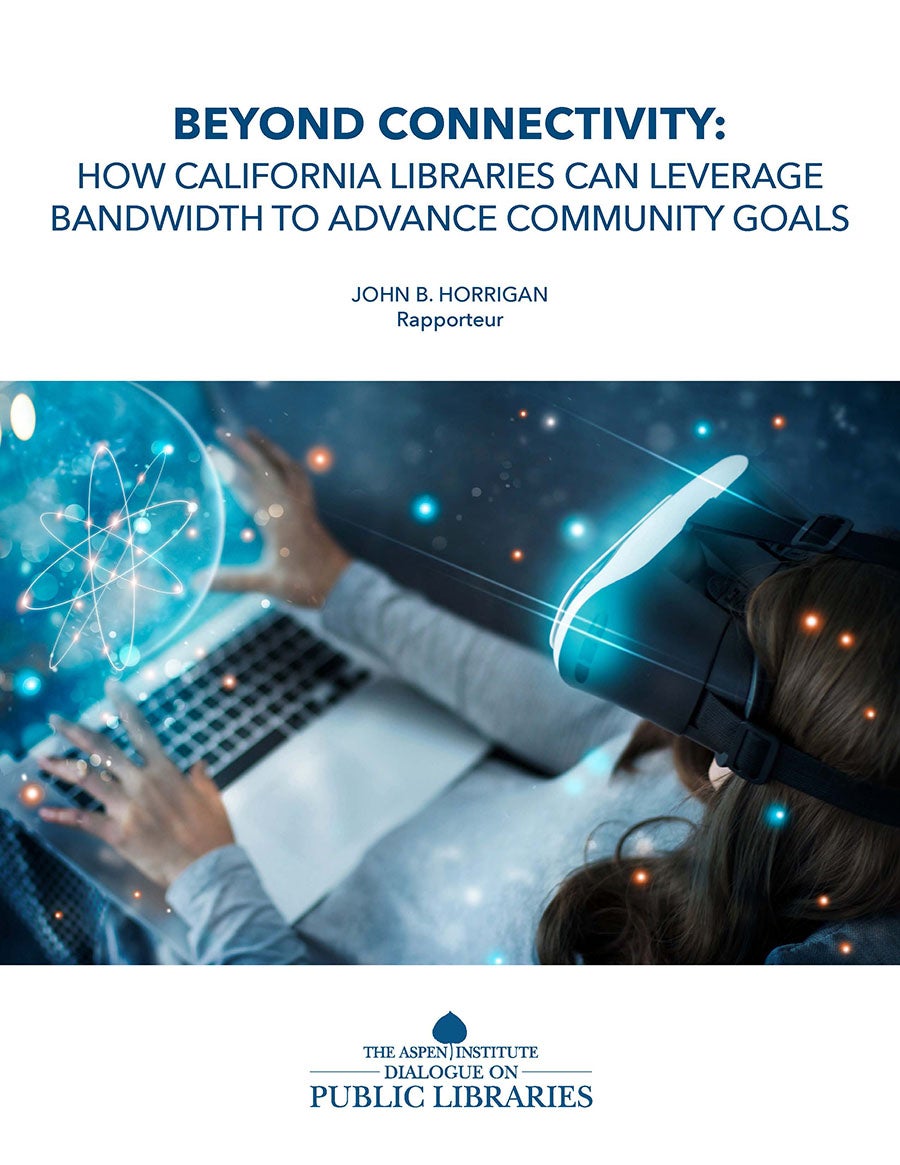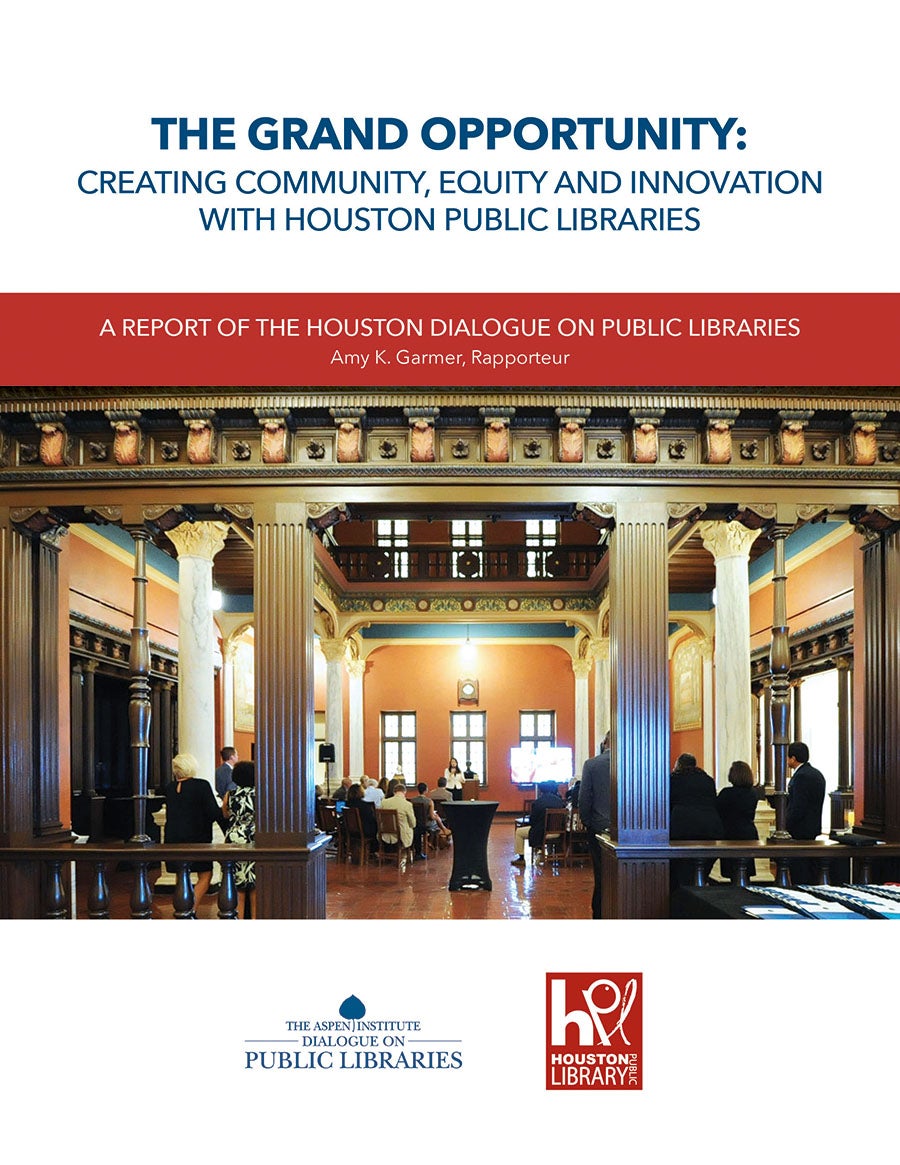
During my five years as director of the New York Public Libraries, I was inspired by the words of Thomas Jefferson, which are carved into the fireplace mantle of the Trustees Room:
“I look to the diffusion of light and education as the resource most to be relied on for ameliorating the conditions, promoting the virtue and advancing the happiness of man.”
For me, these words capture the essence of what public libraries have done in this country from their beginning in the 1700s — diffuse light and education to improve the lives of individuals and communities. Having spent almost 50 years in libraries, I am so proud of how libraries have reinvented themselves over time — embraced technology in the automation of professional processes and service delivery, put the library user at the center of all we do, and become a vital partner in the life of communities.
It was therefore an honor to participate in the Dialogue on Public Libraries convened by the Aspen Institute to both re-envision and renew our commitment to the value of these institutions — and, more important, to explore new opportunities to be engaged in the lives of people and communities.
At a time when public libraries are seen by the American public as a trusted and important information source and community asset, this was a conversation built on strength — not another conference lamenting the death of the public library. A passionate group of stakeholders representing libraries, government, technology, users, and community leaders helped create a vision of the future that strengthens the role of the library in diffusing light and education.
Creating a literate society has always been the mission of the public library. Literacy has become so much more complex than when I first sat at a reference desk in the Massachusetts Institute of Technology libraries teaching students how to use the card catalog. Today, essential “literacies” include information, digital, social media, and civic, to name a few. Empowering users to become literate and excited about new and developing ways to be successful citizens is part of our vision.
A literate and empowered citizenry leads to a better trained and educated workforce. The public library has traditionally played a role in job searches, resume writing, and interview skill preparation. Now, libraries are providing hands-on experience with dynamic new technologies to build 21st century skills — 3D scanners and printers, laser cutters and engraving machines, professional grade recording and digital video equipment, special effects machinery, editing and design software, and flatbed scanners. Employers are seeking better trained (tech savvy) and educated candidates; the public library will support this need.
“Free and open to all” has been the mantra of the public library. The commitment to equitable access in the electronic environment will be even more important in a more connected and digitally based future.
It is a bright future we have envisioned. One I think Mr. Jefferson would applaud.
David Ferriero is the 10th archivist of the United States at the National Archives and Records Administration.

